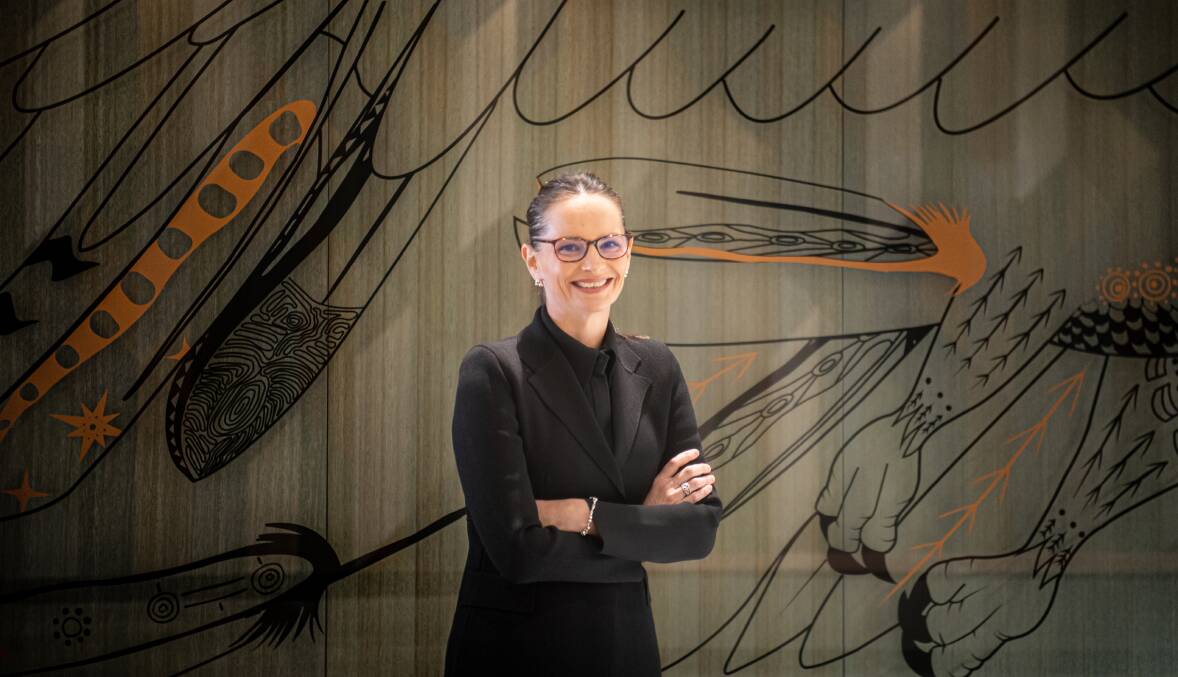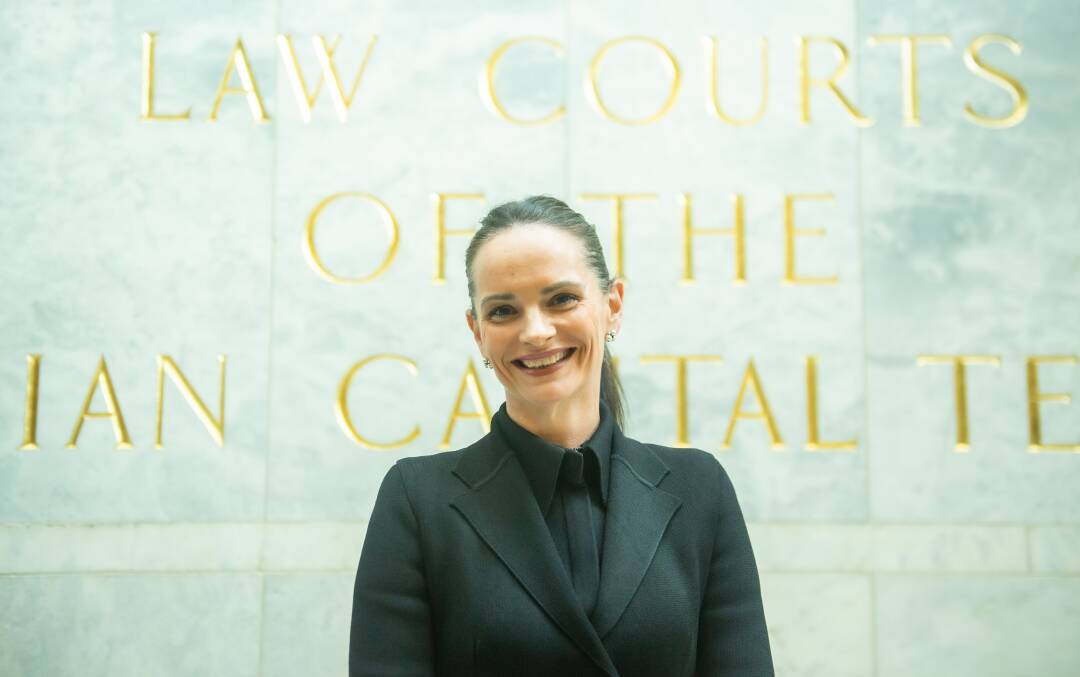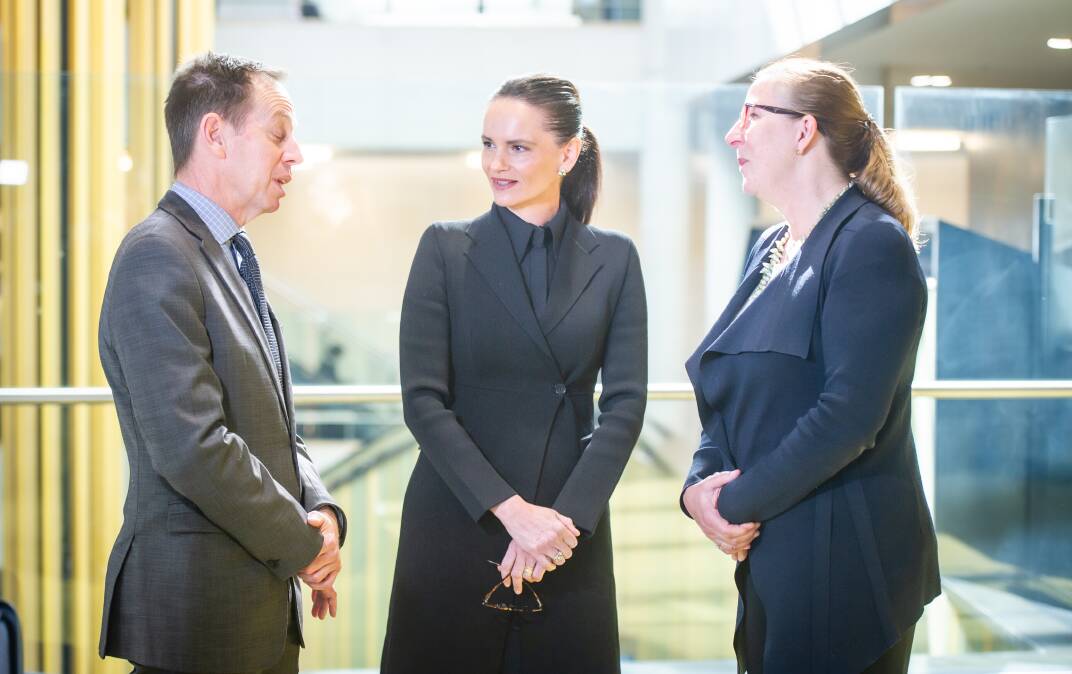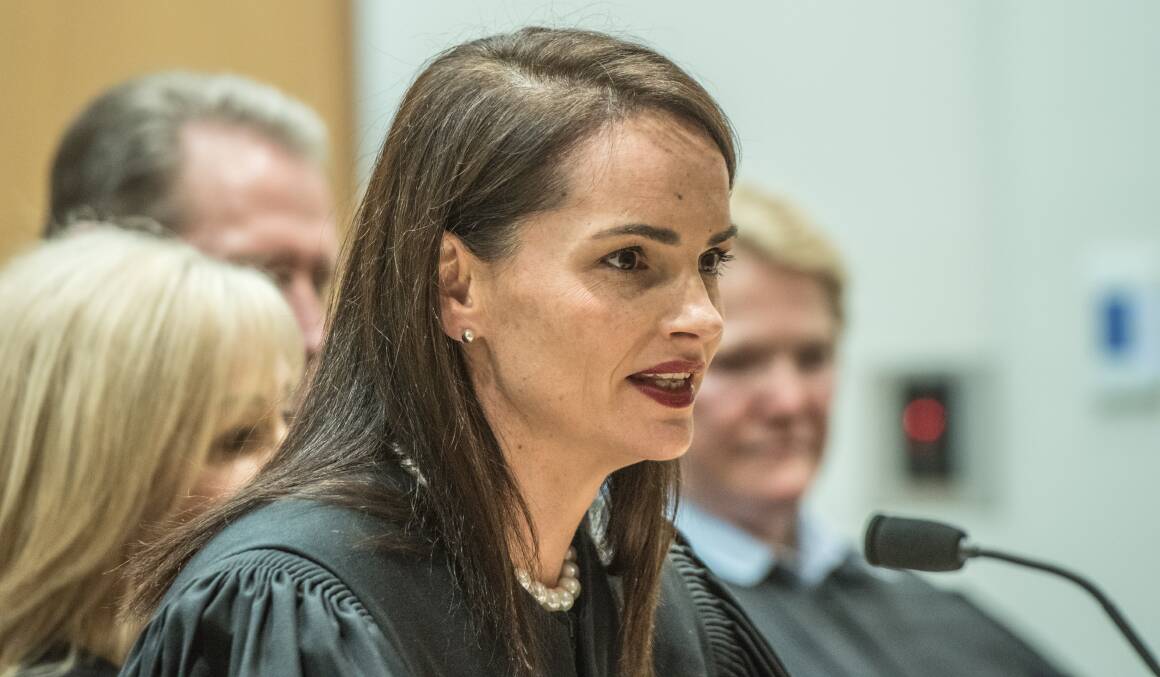
The first Indigenous woman to be made a superior court judge in Australia has described the announcement of her historic appointment as "a very proud day for First Nations people".
Magistrate Louise Taylor will soon be elevated to a revamped ACT Supreme Court, becoming the territory's first Aboriginal judge of any gender.
"This is, of course, a very proud day for my family and, I hope, a very proud day for First Nations people, in particular First Nations women," Ms Taylor said on Wednesday.
"I'm conscious of the significance of it, and I'm very proud to accept this appointment."
A traiblazer in the legal profession, Ms Taylor practised on both sides of the bar table before becoming a magistrate in the ACT five years ago.
She had previously worked in the offices of the ACT and Commonwealth directors of public prosecutions, while she also did a stint as the deputy chief executive officer of Legal Aid ACT.

Her clients as a defence lawyer included David Eastman, who spent 19 years in jail over the assassination of Australian Federal Police assistant commissioner Colin Winchester before his conviction was quashed.
At the announcement of her elevation on Wednesday, Ms Taylor said she was "very honoured to have the privilege to serve the community in this way".
Asked whether she would look to tackle Indigenous issues, previously identified by Chief Justice Lucy McCallum as a priority for the court, Ms Taylor said she would be "focused on the work of a Supreme Court judge".
"And I'm hopeful that I'm able to contribute to the way the ACT continues to deal with the challenges and problems that exist in our community that see a whole range of people come before the court," Ms Taylor said.
"For my part, it will be business as usual: being a judicial officer, just in a different place with a broader jurisdiction."

The appointment of Ms Taylor, a proud Kamilaroi woman and long-time Canberra resident, increases the number of resident ACT Supreme Court judges to six.
It also marks a shift in the structure of the court, which, apart from Justice David Mossop, is entirely female.
There were historically five resident judges and an associate judge, with the occupant of the latter role typically dealing with the bulk of the court's civil cases.
It was most recently filled by Justice Verity McWilliam, who was made a resident judge earlier this year.
Because Justice McWilliam already had "a very broad remit of work", Attorney-General Shane Rattenbury decided to "upgrade" her old position by recruiting another resident judge.

Chief Justice McCallum said Ms Taylor had received "thumping support" to take on the new role, which would allow her to spread the court's civil workload more evenly and efficiently.
"I'm extremely excited about this appointment," the territory's top judge said.
"It is a happy fact that Louise is a Kamilaroi woman and the first Aboriginal woman to be appointed to a superior court, but she was very much appointed on merit.
"The recruitment process was robust."
Mr Rattenbury described Ms Taylor as "an outstanding appointment".
"Ms Taylor is recognised for her outstanding service in the [ACT Magistrates] Court," he said.
"She has a strong professional record. She is highly regarded in the ACT legal community.
"And, when the government undertook a recruitment process, she performed extremely strongly as a candidate."
The Attorney-General said he was particularly pleased to be promoting a local member of the legal profession, having recruited numerous judges from NSW in recent times.
"To produce a judge from the ACT, I think, is an outstanding reflection on our own legal community and the calibre of lawyers who exist in this jurisdiction," he said.
Mr Rattenbury indicated the process of recruiting a new magistrate to replace Ms Taylor would begin "very quickly".







